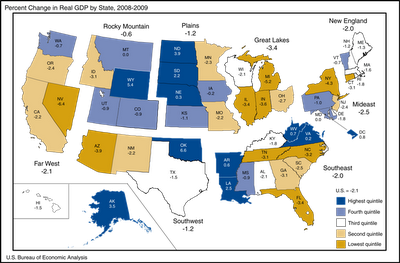Good Advice
Labor can spend a billion dollars but the American people clearly rejected their scare tactics and messages. Now, Bruce Walker has made a persuasive case in favor of pushing new Right To Work laws as a way to protecting workers, creating jobs and promoting prosperity:
The 2010 landslide means that Republicans in the House can stop any new legislative initiatives by the Democrats and that Senate Republicans, if united, can stop almost anything Democrats want to do in that body as well. House Republicans can also send to the Senate bills that will put political pressure on Obama and Senate Democrats, like a complete extension of the Bush tax cuts. But at the federal level, Republicans cannot actually do anything without Democrats caving in.
The situation is very different at the state level. Republicans now control both houses of the state legislature and the governorship in a number of states. Republicans now have complete control of state government in twenty states compared to a paltry seven states before the midterm election. Crucially, Republicans now control all state government in five industrial rust belt states: Pennsylvania, Ohio, Michigan, Indiana, and Wisconsin. This control will allow Republicans to draw congressional districts and also, just as importantly, state legislative districts -- a real political blow to Democrats.
Unlike the federal government, a party that actually controls the state legislature and governorship can enact laws -- the filibuster is an odd creature almost unique to the United States Senate. There are many things Republicans in control of state governments should do: limit spending, cut tax rates, reduce regulation. But there is one reform that stout-hearted Republicans running those five rust belt states should definitely do: pass Right To Work laws. The Taft-Hartley Act allows each state the option of enacting right to work laws, which allow workers to not join a labor union as a condition of employment. Twenty-two states have adopted right to work laws, and these states closely resemble the twenty-two states that Obama lost in 2008. Although the leftist establishment media gets a disproportionate amount of attention from conservatives, along with risible "civil rights" leaders and surreally silly academicians, the real political muscle of the Left comes from organized labor -- meaning the bosses who run with those vast empires called "labor unions" and who use the forced dues from members to engage in constant war against conservatives.



